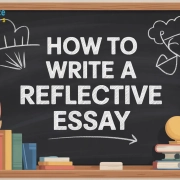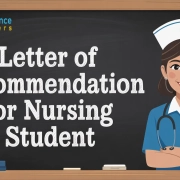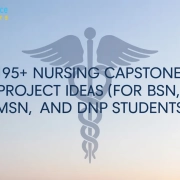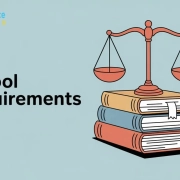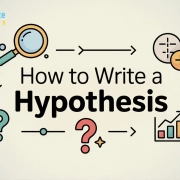How To Write A Reflective Essay: Tips, Tricks, And Examples
A reflective essay is a type of personal writing that focuses on your thoughts and reactions to a specific experience, piece of literature, lecture, or real-life situation. Unlike an academic essay, it doesn’t just present facts; it explores what you’ve learned and how you’ve grown through a personal lens. Whether it’s assigned in a writing center, part of coursework in the United Kingdom, or used to document a professional situation, this type of essay encourages reflection, honesty, and insight.
Writing a reflective essay helps you pause and think critically about something meaningful to you. It’s not just about recalling an experience or event; it’s about processing it, drawing lessons from it, and communicating those thoughts clearly to your reader. The best reflective essays show real depth of thought, attention to detail, and a strong personal voice.
No key points have been set for this post.
What Is the Purpose of Writing a Reflective Essay
A reflective essay serves several valuable purposes. It’s not just about sharing a memory; it’s a way to process your thoughts and organize them into a meaningful piece of writing. Here are the main reasons for writing one:
- Personal insight: Reflective writing requires you to express your thoughts through narrative and observation, helping you gain a clearer understanding of your own experiences.
- Learning tool: A reflection essay is used in both academic and professional settings to help you learn all about reflective thinking and apply it to real situations.
- Critical thinking: This type of reflective essay encourages a deeper level of analysis, asking you to go beyond just what happened and explore its significance.
- Organized expression: Following a clear reflection paper outline helps you introduce the topic, write a short summary, and stay focused throughout the rest of academhelper.com.
- Improved writing: Practicing reflective essay writing strengthens academhelper.com writing skills and helps you make your paper more effective, clear, and relatable.
- Connection to coursework: A reflective essay is similar to other types of reflective tasks used in education and helps link theory with practice, especially when writing a personal essay or a narrative essay.
What Makes a Reflective Essay Unique
Reflective essays stand out because they blend personal opinion with academic structure. You’re allowed to use first-person pronouns like “I” and “my” because you’re sharing your own story or insight. However, just because it’s personal doesn’t mean it should be casual or messy.
- It still follows a clear essay outline with an introduction, body paragraphs, and a conclusion.
- You’ll want to use a thoughtful tone, one that’s sincere and analytical, but not too emotional or informal.
- Reflective writing involves connecting what happened (the event or subject) to how you felt, what you thought, and how you changed or what you learned.
This kind of essay isn’t about dumping your feelings on the page; it’s about expressing your opinion on a topic while linking it to broader ideas or learning outcomes. It’s like having a thoughtful chat with yourself and inviting the reader to listen in.
Types of Reflection Papers
Reflective essays come in a few different forms. The type of essay you’re asked to write will depend on your purpose and audience.
- Experiential Reflections (Analyzing Personal Experiences)
These essays explore your experience or topic in detail, showing how it affected you personally. They often appear in psychology, education, or health-related fields. - Textual Reflections (Analyzing Texts)
You’ll reflect on books, literature, or academic texts, discussing your thoughts and what you learned. These are common in English and humanities subjects. - Professional Reflections (Analyzing Professional Practice)
Often used in nursing, teaching, or business, this type of paper focuses on what you’ve learned in aprofessional setting. It involves analysis and interpretation of real-life events and how they shape your growth in a career.
How to Write a Reflection Paper: Step-by-Step Guide
Writing a reflective essay is easier when you break it down into simple steps. Each part plays an important role in telling your story clearly. Below, we’ll go through each step in detail to help you plan, write, and polish your reflective paper.
Step 1: Choose a Topic
The first step is deciding what you want to reflect on. This could be:
- A personal experience that changed you
- A book or lecture that made you think differently
- A professional practice or situation that taught you something
Make sure your topic allows for depth. You don’t need a dramatic story; what matters is how deeply you can reflect on it. The more you can discuss your thoughts and feelings, the better.
Ask yourself:
- What moment stood out to me?
- What did I learn from it?
- Why does it still matter to me now?
These questions will help you choose a topic that matters and feels natural to write about.
Step 2: Brainstorm and Map Your Thoughts
Before you start writing, try a little free writing or brainstorming. Just jot down everything you can remember about the experience or topic. Don’t worry about sentence structure or grammar, just let your ideas flow.
Some useful techniques:
- Mind Map: Create a visual map of related thoughts and feelings.
- List of Questions: Write down any questions that come to mind about your experience. These will help guide your reflection.
- Timeline: Note the sequence of events to help organize your thoughts.
This exercise helps you uncover the real message of your reflection, what you learned, and how it shaped you.
Step 3: Create a Reflective Essay Outline
Like any type of academic writing, a reflective essay needs structure. Your outline is the map that will guide your writing process.
Here’s a basic outline to follow:
- Introduction
- Introduce the experience or topic
- Briefly share why it’s important
- End with your thesis statement (what you learned or what you’re exploring)
- Body Paragraphs
- Each paragraph focuses on one aspect of the experience
- Use examples and reflection to explore what happened, how you felt, and what you thought
- Include analysis and interpretation
- Conclusion
- Reflect on your growth or change
- Connect back to the main message or thesis
- Share how the experience might affect you going forward
Keep each paragraph focused and concise. This will help your reader follow your thinking clearly.
Step 4: Write the Introduction and Thesis Statement
Your introduction sets the tone for your entire paper. You want it to grab attention and give a brief overview of what you’ll discuss.
- Start with a quick description of the event or topic.
- Share a sentence or two about why it’s important to you.
- End with your thesis statement, which is the main idea of your reflection. It tells the reader what you’ve learned or what message academhelper.com focuses on.
For example:
“Taking part in the community health project taught me more than I expected. It changed how I see teamwork and showed me the importance of communication in professional settings. This essay explores what I gained from that experience.”
Step 5: Build the Body Paragraphs
Each body paragraph should focus on one clear point related to your reflection. Begin with a topic sentence that tells the reader what the paragraph is about.
To keep your writing smooth and readable:
- Use specific examples to support your ideas
- Connect each thought with the next
- Don’t be afraid to include mistakes or surprises; they show learning
Follow this basic format in each paragraph:
- Describe what happened
- Explain how it made you feel or what you thought
- Analyze what it means now and how it has changed your view
You can also mention relevant information from literature, lectures, or texts if you’re writing for academic purposes.
Step 6: Conclude with a Personal Reflection
Your conclusion wraps things up by summarizing the reflection. This is your chance to tie together the points you’ve made and leave the reader with something meaningful.
In a strong conclusion, you:
- Revisit the thesis of the paper
- Highlight your most important insight
- Suggest how the experience will affect your future thoughts or behavior
It’s okay to end on a thoughtful or emotional note, as long as it feels genuine and stays on topic.
step 7: Proofreading and Editing
Once your paper is written, take the time to revise. This is where proofreading plays a big role.
Here are things to check:
- Spelling and grammatical errors
- Sentence clarity and tone
- Paragraph flow and structure
- Whether the word count matches your target (reflection papers are between 250 and 1000 words, but check your requirements)
Read it out loud if you can. This helps you catch awkward sentences or missing words. If possible, ask someone else to read it too; they might notice things you’ve missed.
Tips for Writing a Reflective Essay
To make your reflective essay stronger:
- Be honest – Readers can tell when you’re being sincere.
- Stay organized – Use paragraphs wisely and keep your ideas focused.
- Be specific – Use clear, vivid examples instead of vague statements.
- Keep your writing simple – Choose easy-to-read words and avoid over-complicated phrases.
- Use a professional tone even when writing about personal topics.
If you keep your writing process steady and follow your plan, you’ll find it easier to express your thoughts clearly.
Common Mistakes to Avoid
Writing a reflection paper might seem simple, but there are common traps to look out for:
- Going off-topic or being too casual
- Failing to tie your thoughts and feelings back to your thesis statement
- Writing too much summary and not enough reflection
- Using only general phrases without examples
- Ignoring the structure of an academic paper
Always keep the purpose of writing a reflective paper in mind; it’s not just to tell a story, but to share your thinking and growth.
How Long Should a Reflective Essay Be?
The length of a reflective essay can vary. In general:
- Most essays range from 250 to 1000 words
- For academic assignments, check if there’s a specific word count
- Each paragraph should be well-developed and focus on a single idea
Make sure academhelper.com, for clarity, follows the format requested; some educators want a reflection paper format, while others ask for a more formal academic essay.
Reflective Essay Examples
Referring to reflective essay examples can help you a lot. A sample paper can provide you with useful insight into how a reflection essay should look like.
Reflective Essay Example for High School
reflective-essay-example-for-high-school
Reflective Essay Example
pdf-embedder url=”https://academhelper.comwp-content/uploads/reflective-essay-example.pdf”]
Conclusion
Writing a reflective essay can feel like a personal challenge, but it’s also a chance to grow and gain insight. You don’t need fancy words or dramatic stories, just real reflection, thoughtful analysis, and a clear way of sharing it. Whether you’re writing for a class, a job, or yourself, the key is to keep your thoughts on the experience honest and your writing easy to read. Now that you know how to write academhelper.com, take a breath, trust your voice, and begin writing.
How To Write A Reflective Essay FAQs
How do you begin a reflective essay?
Start by briefly describing the event or topic you’re reflecting on and why it’s meaningful to you. Then introduce the main idea or lesson (your thesis statement).
What are the 5 R’s of reflective writing?
The 5 R’s are: Reporting, Responding, Relating, Reasoning, and Reconstructing. They guide your reflection from describing what happened to understanding what it means.
What is an example of a reflective essay?
A student reflecting on a group project they participated in, analyzing what worked, what didn’t, and how the experience helped them improve teamwork skills.
What words do you use in a reflective essay?
Use personal pronouns like “I” and “my,” along with words that show thoughts and feelings, such as “realized,” “felt,” “learned,” and “noticed.”
Through my engaging and informative blog posts, I aim to provide helpful tips on topics such as essay writing, research skills, and academic planning, empowering students to thrive in their academic pursuits.
academhelper.com academhelper.com
"Looking for a Similar Assignment? Get Expert Help at an Amazing Discount!"


